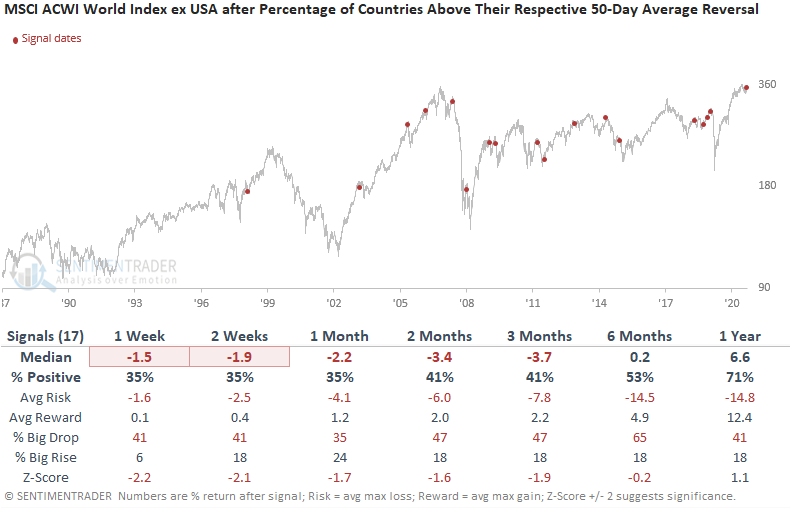5 Markets Herald
These Are
The Most Important Strategies For Investing In Stocks.
Buying stocks isn't hard. The trick is finding companies that consistently beat the stock market. It's a difficult task for most people, which is why you're looking for tips on investing in stocks. The below strategies courtesy of
Markets Herald will deliver tried-
and-true rules
and strategies for investing in the stock market.

1. At the door, be aware of your emotions
"Successful investing is not correlated
with intelligence. The key is the temperament and the ability to manage the impulses that lead others to invest in a risky manner. Warren Buffett, chairman and CEO of Berkshire Hathaway is an example of this wisdom, and a great role example for investors seeking longevity, long-term returns that beat the market.
Before we dive in, let's give you one suggestion. We recommend not investing in greater than 10% in individual stocks. The rest should be invested in low-cost index funds. It is advised not to put any money into stocks in the next five years. Buffett meant that investors should not let their minds but their guts drive their investing decisions. Overactive trading that is driven by emotion can be one of the primary ways that investors can ruin their portfolio's returns.
2. Pick companies, not ticker symbols
It's easy for us to overlook that beneath the alphabet soup of stock quotes that crawl along the bottom every CNBC broadcast is a legitimate company. Stock picking shouldn't be just an abstract idea. You're a shareholder in the company when you purchase a share of its stock.
"Remember buying shares in an investment company is similar to becoming an owner in that particular business."
When you're looking for potential business partners, you'll come across many details. If you're wearing the "business buyer's hat," it's much easier to choose the right items. You will want to learn about the business, its position within the market overall and in the competition, the long-term outlook, and whether it can enhance the value of your business portfolio you already have.

3. Avoid panicky situations by planning ahead
Investors are often enticed by the opportunity to change the relationship with their stocks. However, making decisions in the heat of the moment could lead to the most common investment blunders: purchasing high, and then selling low. Journaling can be an effective tool. If you're sure of the qualities that make every stock worth being committed to and then note down the reasons why. Let's look at this example:
Why I am buying: What do you find attractive about the company. Also, what potential future developments you see. What are your goals? What are your most important metrics? which milestones do you intend to determine the progress of your company? The possible pitfalls that may befall you and the best way to spot these.
What would make me desire to sell? Sometimes , there's a compelling reason to end the relationship. You can make an investment Prenup to explain the reason you're selling the shares. This doesn't mean stock price movements, specifically not in the short-term, but rather fundamental changes to your company that affect its capacity to continue to grow over the long run. A few examples: The business is unable to retain a key client or the CEO's successor begins taking the business in an entirely different direction, a major viable competitor is discovered or your investment plan does not work out over an appropriate time.
4. You can build gradually your position
Timing isn't the investor's most reliable friend. The most successful investors purchase stocks because they anticipate to be rewarded -- whether through dividends, share price appreciation or dividends. over time or even decades. It also means you can buy slow. Here are three buying techniques that will help you lower your risk.
Dollar-cost average: Although it seems complicated, it's actually quite simple. Dollar-cost average means that you invest a fixed amount at regular intervals (e.g. at least once per week or once a month). The money can be used to purchase additional shares if the stock price drops and less shares if it rises. However, overall it equals the price you pay. Some
online brokerage firms permit investors to create an automated investing schedule.
Buy in thirds: This is similar to the dollar-cost averaging. "Buying in thirds" can save you from the sour feeling of receiving sloppy results straight away. Divide the amount you want by three, and then select three points to buy shares. This could be at regular intervals that include monthly or quarterly or in response to company results or other events. You might, for example, buy shares prior to the release of a product and put the remaining third in play if the product succeeds. If not, you may transfer the money elsewhere.
Buy "the basket": Can't decide which of the companies in a specific industry will win the long run? Get them all! Buying a basket of stocks reduces the stress of choosing "the right one." You won't lose out on any player that passes the test, and you can use the profits from that winner as a protection against losing. This method will allow you to determine which company "the one" and will help you increase your stake.

5. Do not make too many trades.
A good idea is to review your stock at least once every quarter. This is also true the quarterly reports you receive. It's not easy to keep track of your scoreboard. It can be dangerous to respond too fast to events that happen in the short term and concentrate on the value of the company rather than share price.
Learn the reason behind a stock's sharp price swing. Do you think collateral damage is due to the market in response to an incident that is not related to the value of your stock? Does the business of your company have changed? Has it had a significant impact on your long-term prospects?
It's rare that the news from the short-term (blaring headlines, and price fluctuations) can influence the long-term performance of a carefully selected business. What investors do to deal with the noise is what's important. Your investing journal, which is an unwavering voice from quieter times, can be used to help you stick to it during the inevitable fluctuations and downs of investing in stocks.